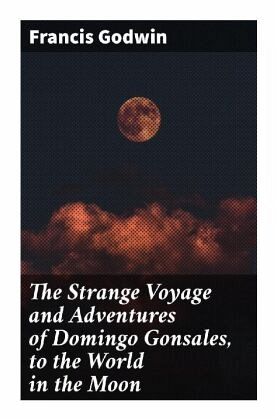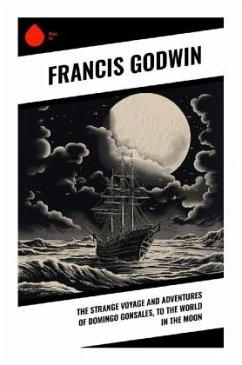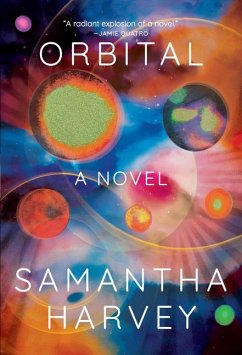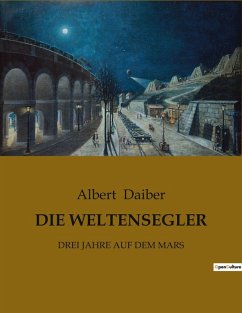
The Strange Voyage and Adventures of Domingo Gonsales, to the World in the Moon
Versandkostenfrei!
Versandfertig in 6-10 Tagen
6,99 €
inkl. MwSt.
Weitere Ausgaben:

PAYBACK Punkte
3 °P sammeln!
In 'The Strange Voyage and Adventures of Domingo Gonsales, to the World in the Moon,' Francis Godwin masterfully blends elements of adventure, satire, and early science fiction. Written in 1638, Godwin's narrative follows Domingo Gonsales, a protagonist who embarks on an extraordinary journey to the Moon, propelled by a mechanical device crafted from a magical fowl's feathers. Employing a rich, descriptive prose style, Godwin's work cleverly critiques contemporary societal norms and scientific aspirations, reflecting the burgeoning interest in exploration and the celestial that defined the ear...
In 'The Strange Voyage and Adventures of Domingo Gonsales, to the World in the Moon,' Francis Godwin masterfully blends elements of adventure, satire, and early science fiction. Written in 1638, Godwin's narrative follows Domingo Gonsales, a protagonist who embarks on an extraordinary journey to the Moon, propelled by a mechanical device crafted from a magical fowl's feathers. Employing a rich, descriptive prose style, Godwin's work cleverly critiques contemporary societal norms and scientific aspirations, reflecting the burgeoning interest in exploration and the celestial that defined the early modern period. The text operates within the literary context of utopian narratives and speculative fiction that were emerging alongside the scientific revolution, revealing early visions of space travel and the cosmos. Francis Godwin, a cleric and scholar, was deeply influenced by the intellectual currents of his time, including the works of Thomas More and the explorative spirit of the Renaissance. His profound interest in astronomy and philosophy is evident in the imaginative scope of this book, revealing his desire to subject the conventions of his society to scrutiny through fantastical storytelling. Godwin's background and experiences enriched his understanding of human aspiration and folly, culminating in a work that both entertains and provokes thought. I highly recommend 'The Strange Voyage and Adventures of Domingo Gonsales' to readers who enjoy witty exploration of speculative ideas interwoven with social commentary. Godwin's pioneering narrative not only captivates with its imaginative premise but also invites contemplation on the human condition and our quest for knowledge, making it an essential read for enthusiasts of classic literature and early science fiction.












